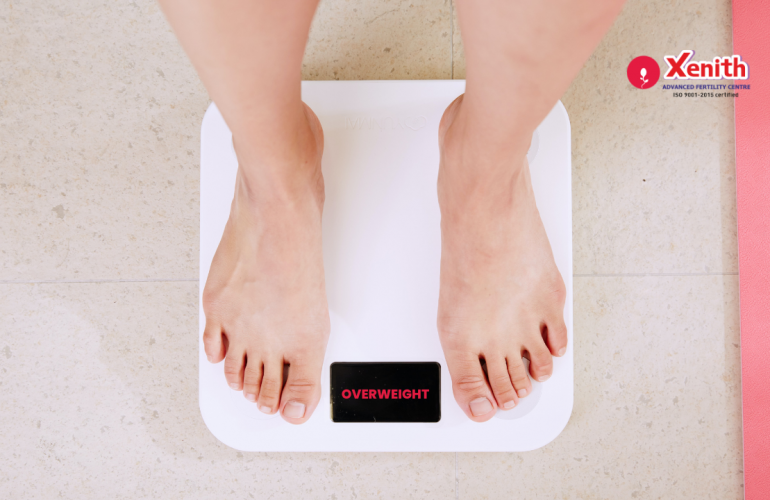The immune system plays a vital role in keeping you healthy and it is made up of cells, tissues and organs throughout the body which protect the body from infection from viruses, bacteria, other germs, and from other harmful substances that could make you ill. So basically, the immune system can be triggered by certain proteins found in the surfaces of bacteria, viruses or other things that the body recognizes as foreign. Our own body is made of cells that have proteins on their surface and usually our immune system doesn’t fight against its own cells. But sometimes, it mistakes our own cells as foreign and begins fighting these cells and this is called an autoimmune response leading to an autoimmune disease. They could be passed down genetically or could be due to certain infections or exposure to certain chemicals but researchers don’t exactly know what causes autoimmune diseases. It also seems to be more common in women and sometimes get triggered during pregnancy.
Some common symptoms of autoimmune disease could include fatigue, joint pain, inflammation or swelling, recurring fever, swollen glands or issues with digestion.

Free Thursday Consultation
Book Your AppointmentAutoimmune diseases:
- Type 1 diabetes-occurs when the immune system destroys some or all of the insulin producing cells in the pancreas. Food is broken down into glucose in the bloodstream. Insulin allows the glucose to enter the cells and give it energy. With little or no insulin, the cells in the body don’t have energy and the glucose levels rise in the blood stream leading to tissue damage and other symptoms like frequent urination which then leads to dehydration. If you are planning on having a child and are diabetic, make sure your sugar levels are stable and within the normal limits, that you are healthy. Check with your doctor to see if any of your medications can affect conception. Once you are pregnant, there are risks of miscarriage, preeclampsia, vision loss, kidney issues, and larger than average baby for diabetics. So, make sure you check your sugar levels often, eat diabetic friendly and healthy food and exercise regularly.
- Rheumatoid arthritis- is an autoimmune disease which attacks more than just your joints in the hands, wrists, and knees causing inflammation but eventually also other parts of the body like skin, eyes, lungs, heart and blood vessels. It may develop during pregnancy or just after delivery. If the lower part of the spine or hip joints have been affected, then it might make delivery more difficult. But the fetus is not affected by this disease.
- Systemic Lupus Erythematosus (lupus)-causes inflammation of the connective tissues of the body. Connective tissues are fibers that support and hold together the body’s cells, organs, and tissues together. The most common symptoms of lupus are fatigue, fever, and feeling unwell. As the disease progresses, it can affect various organs like kidneys or lungs. Risks during pregnancy include miscarriage, restriction of fetal growth, and greater risk of preterm delivery. There could be serious consequences if the mother has complications like high blood pressure or kidney damage.
- Scleroderma – is another autoimmune disease that affects the connective tissues and it can cause thickening of the skin and blood vessels. It could also cause scar formation on internal organs like lungs, heart, kidneys or digestive tract and could damage nerves, muscles, tendons or ligaments or cause high blood pressure. Mild scleroderma rarely affects pregnancy but women with more severe scleroderma, are at risk of developing preeclampsia, which is high blood pressure due to pregnancy, preterm labor, and kidney issues.
- Multiple Sclerosis (MS)- is a disease which attacks the myelin which is the protective layer around nerve fibers and makes it hard for the brain to send signals to the rest of the body. It’s usually safe for women with MS to become pregnant, have a healthy baby and breastfeed after the baby is born. Certain medications for MS might affect the fetus and so the doctor will need to be consulted. Surprisingly, the hormonal changes during pregnancy may help ease symptoms of MS in many but not all women.
- Celiac disease -is caused due to ingestion of gluten and it could damage the intestinal lining, lead to diarrhoea, fatigue, weight loss, bloating and anaemia. A gluten free diet can make it safe to become pregnant and have a baby with very little risk. But consuming foods with gluten during pregnancy could cause miscarriages, low birth weight, or preterm delivery. Make sure you consume enough vitamins and minerals to stay healthy. Because it is a genetic disease, there is a chance that this could be passed on to the children
- Hashimoto’s disease- occurs when the immune system attacks the cells in the thyroid gland located at the base of the neck which produces hormones that regulate heart rate, blood pressure, body temperature, metabolism, cause irregular menstrual cycles and more. This can lead to difficulty getting pregnant, and once pregnant, it could increase your risk of preeclampsia, miscarriage, anemia, placental abruption, where the placenta pulls away from the uterus, premature birth, and risk of heavy bleeding after delivery and more. Thyroid hormone replacement can be used to treat the mother and its levels should be checked often to make sure both mother and fetus are healthy.
Is there anything you can do?
If women with autoimmune diseases wish to conceive, it is recommended that they try to get into remission or improve their condition for at least six months to reduce risk of complications during pregnancy. Each woman is different in the severity of the disease and how their body reacts with various things. Consult with your doctor to lower or replace your medications with safer ones and also take prenatal vitamins so that there is lowered risk to fetus and you. Due to changes in hormones and other parameters during pregnancy, you might need to see your specialist more often than usual to adjust your medication and make sure both you and the baby are healthy. Make sure you lead a healthy lifestyle during pregnancy by eating healthy foods like fruits, vegetables, and other unprocessed foods that is good for your specific autoimmune condition. Get enough regular exercise to keep your weight in check. Try to remove stress because sometimes it can exacerbate your condition and counselling or talking to others might help. Even though the risk of infertility and issues during pregnancy are increased, many women go on to have normal, healthy pregnancies and babies by taking care. If you need help or have questions about autoimmune disease, feel free to consult with our experts are Xenith Advanced Fertility Centre.



